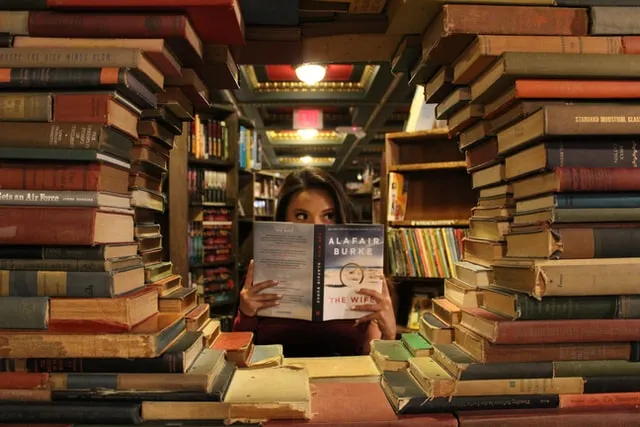
In Praise of In-Person Bookish Events
I was fortunate to attend the Emirates Airlines Festival of Literature this year in person. Of course, attending in-person book events isn’t possible for many right now — and wasn’t always possible before the pandemic, either — and I get that. So many of us continue to limit our activities by necessity. However, there were several moments that made attending in person absolutely worth it for me.
Now don’t get me wrong. I realize there are many reasons why moving from live events to virtual (or some combination) has been incredible. Particularly from an accessibility standpoint, virtual events can be just as good or better than attending in person. Jessica Pryde offers a compelling case for why this is in her plea to keep doing virtual book events after the pandemic subsides. And Alice Nutall gives an excellent look at the rise of virtual book festivals, a development I likewise applaud.
Although there was a virtual pass this year for the EA Festival of Literature, I really wanted to attend in person. However, before I focus on my moments of bookish joy, a little background is in order. The festival was in the UAE, which has a very high vaccination rate. I knew there would be careful cleaning and social distancing measures in place. I also did not have to travel far, unlike some attendees. In addition, I could easily mask up, sanitize my hands frequently, and show my digital vaccination proof every time I walked into a session.
And while I did not make it to every interesting session, I attended several that I really enjoyed. I heard Toshikazu Kawaguchi talk about his process writing Before the Coffee Gets Cold, Elizabeth Acevedo reading from Clap When You Land, Marina Wheeler talk about her memoir The Lost Homestead and delight in listening to Shahad al Rawi discuss her novels The Baghdad Clock and Over the Republic Bridge (the latter of which should come out in English translation soon). And I even got to hear Brit Bennett talk (remotely, in her case) about The Vanishing Half.
Multilingual Work is Awesome
Several things struck me as I sat in these sessions. First, I was once again in awe of the work of simultaneous interpretation as I listened to Kawaguchi. The effort it takes to interpret back and forth in a discussion in two languages is really massive. It worked like this: the moderator posed thoughtful (and sometimes lengthy) questions in English, then the Japanese interpretation passed through Kawaguchi’s headset, and then he responded in Japanese as an English translation passed through my ear buds. Without this, I would have understood “hello” and “goodbye” and only a handful of other words, so I am grateful to the interpreters who worked behind the scenes during this session.
The entire interpretation process never ceases to amaze me. It is highly skilled, important work. If you are a human being who can do this into and out of any language for longer than a few minutes, your brain is an impressive and beautiful machine. I hope you feel proud of that.
Audience Participation Can Be Silent
Second, I enjoyed feeling the hush and focus of the audience listening to Elizabeth Acevedo thoughtfully and graciously answer questions, and read from her novel in verse. There is something about being in a room when everyone is listening with rapt attention that is hard to feel through a screen. And of course, I enjoyed having a book signed and chatting with her afterward, even if I had nothing particularly brilliant to say or ask. I just wanted to thank her for coming all that way. It was so lovely to meet her in person even if only for a few minutes.
I Love Applauding Strangers
Third, I enjoyed being in the audience and clapping for Nicole Asinugo, Angela Hundal, and Zahra Alabandi. They won the festival’s competition to discover unpublished novelists. I do not know any of them personally. I had never heard of them or their writing before they were congratulated at the festival. And yet despite this, I really enjoyed being there in the room to celebrate them. They must have spent countless hours writing and rewriting what they submitted to the judges. And that work was most likely done behind closed doors, before or after work, squeezed in among their other responsibilities. There was something so nice about celebrating that effort publicly, with an appreciative and happy audience.
All of this is to say that I still want to see some book festivals and bookish events in person. I find that being together in person can bring a kind of joy that is hard to replicate online sometimes. Here’s wishing that we all can attend – in person or online or in some combination of the two – as many bookish events as our hearts desire for years to come.







